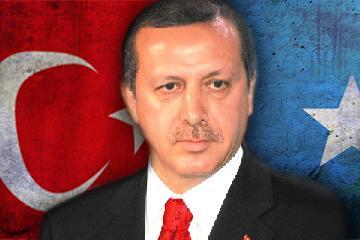
In what seems to be an extraordinary shift in its involvement in Africa, Turkey is fast becoming an ally – and international actor – in Somalia's theater. Lately, Ankara has shown an increasing interest and willingness to intervene to the devastating situation caused by the acute drought, complicated by terrorism and statelessness in Somalia.
In the midst of biblical famine that starved millions of Somalis to death, Turkey was the first country to unilaterally respond to the drought, while traditional donors for Somalia were unable and unwilling to provide more than a fleeting aid package.
There are, perhaps, three essential factors that can be attributed to Ankara's principled approach to Somalia: Moral authority that defines Ankara's Islamic values; business opportunity that makes Turkey a raising global economic competitor and geo-strategic vision that is part of Ankara's global roundabout ambition – a roundabout of different ideas, cultural, business, people and innovation.
For two decades, Somalia has been plagued by continuous warfare, recurrent humanitarian disasters, terrorism, and statelessness. The international community, for its discredit, has been reconfiguring Somalia’s solution for the last two decades, but never succeeded one. The latest pact of such an attempt was just concluded in London, where 50 head of international states, including Turkey, assembled in a one day conference orchestrated by British government, to reset a fresh tone on Somalia.
To top it off, Somalia is fragmented into a multitude of ethnic lines with plenty of transitional governments that are internally paralyzed by stalemates and political bickering. The country is lacking strong central government since the fall of Siyad Barre regime, and the infrastructure is almost totally collapsed.
In a polemic essay by Erodgan at Foreign Policy after his trip in Mogadishu, he mildly slammed the international community for their mortal failure in Somalia, letting the country become its own drama that seems going to nowhere. Contrast to that view, Turkey has strenuously – and more modestly – approached to the crisis in Somalia on a delivery-basis, rather than promises and plans as other donors, and made significant inroads that were not seen before.
Turkey, at the crossroad of civilizations between East and West, has put itself forward as a fellow Muslim nation who, unlike other Muslim countries, cares about what happens in Somalia partly because of the religious and historical ties.
